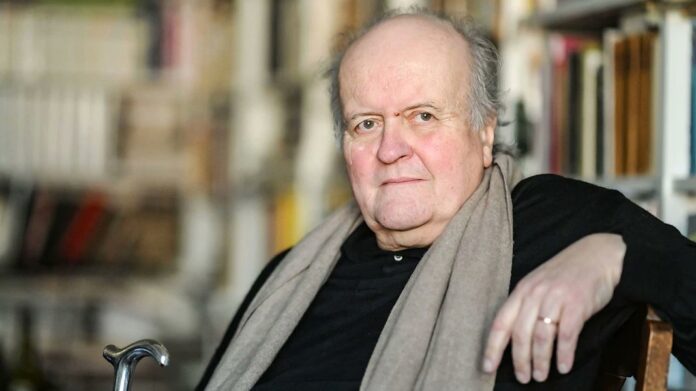Wolfgang Rihm is a renowned German composer and one of the leading figures in contemporary classical music. Born in 1952, he studied at the Musikhochschule in Freiburg and later at the Hochschule für Musik und Theater in Hamburg. Throughout his career, Rihm has been recognized for his unique compositional style and innovative use of harmonies, rhythms, and timbres.
Rihm’s works are widely performed and have been commissioned by many prestigious organizations, including the Berlin Philharmonic, the Vienna Philharmonic, and the Royal Concertgebouw Orchestra. Some of his most notable compositions include:
- “Jakob Lenz” (1978) – a chamber opera that explores themes of individuality and freedom.
- “In splendoribus Sanctorum” (1984) – a choral work that showcases Rihm’s use of dissonance and rich harmonies.
- “Sechs Fantasien über die Kantate ‘Ach wie flüchtig, ach wie nichtig'” (1983) – a set of piano pieces inspired by a 17th-century chorale.
- “Vexierbilder” (1988) – a chamber ensemble piece that features complex rhythms and vivid timbres.
- “Violinkonzert” (1999) – a violin concerto that combines traditional classical forms with innovative musical language.
Rihm has also been recognized for his contributions to the musical community. He has taught at the Hochschule für Musik und Theater in Hamburg and has served as a guest professor at several universities around the world. He is a recipient of numerous awards and honors, including the Ernst von Siemens Music Prize and the Grawemeyer Award for Music Composition.
In conclusion, Wolfgang Rihm is a visionary composer who has made significant contributions to the world of classical music. His works are known for their innovative use of harmonies, rhythms, and timbres, and his influence can be seen in the works of many contemporary composers. His contributions to the musical community have been recognized and celebrated, and he continues to be an important figure in the world of contemporary classical music.
Views: 73






